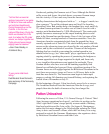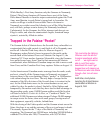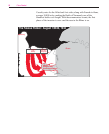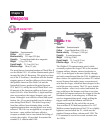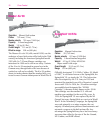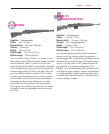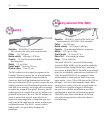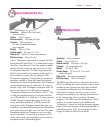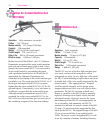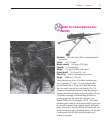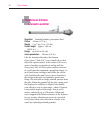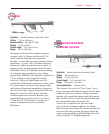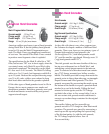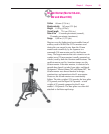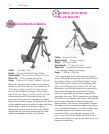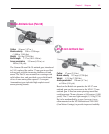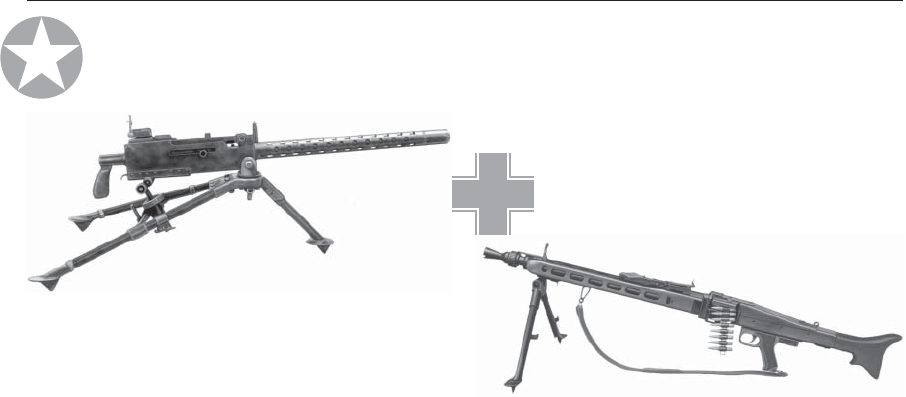
94
Close Combat
.30-caliber Air-Cooled Machine Gun
(M1919A4)
Operation
Fully automatic, air-cooled
Caliber
.30 (7.62 mm)
Muzzle velocity
853.4 mps (2,800 fps)
Capacity
250-round belt
Weight
18.5 kg (41 lbs) with tripod
Overall length
104.1 cm (41 in.)
Rate of fire
400 to 550 rounds per minute
Effective range
1,000 m (1,100 yds)
Before the end of World War I, the U.S. Ordnance
Department recognized that water-cooled machine
guns took up too much space inside a tank. Conse-
quently, the water-cooled M1917 was converted to
an air-cooled model by surrounding the barrel
with a perforated metal jacket. As World War II
approached, the Ordnance Department was
committed to developing an air-cooled machine gun
for infantry use. The result was the M1919A4. At 41
lbs for gun and tripod, the M1919A4 was much
lighter than the water-cooled M1917A1 (93 lbs for
gun and tripod). Consequently, it was used more as
an offensive weapon than the water-cooled guns.
Although unable to maintain the same level of
sustained fire as the water-cooled M1917A1, the
M1919A4 air-cooled machine gun was truly one of
the workhorse weapons of the American infantry.
MG 42 Machine Gun
Operation
Fully automatic
Caliber
7.92 mm (.31 in.)
Muzzle velocity
755 mps (2,478 fps)
Capacity
50-round belt
Weight
11.5 kg (25.3 lbs)
Overall length
121.9 cm (48 in.)
Rate of fire
1,200 rounds per minute
Range
1,000 m (1,100 yds)
The MG 42 was one of the best light machine guns
ever made; variants of this weapon are still in
widespread use today. Its very high rate of fire made
the MG 42 an intimidating weapon; those who faced
its deadly hail of fire were equally impressed by the
sound it made—“like ripping canvas.” Its barrel
could be quickly changed, and its design, using
stamped and pressed steel, was well suited to mass
production. The MG 42 was more reliable, and
almost as versatile, as the MG 34 that it generally
replaced, allowing use on bipod, tripod, and dual
antiaircraft mounts. However, because the square
barrel housing of the MG 42 was inappropriate for
use as secondary tank armament, the MG 34
continued in that role. An assault variant of the MG
42 used a 75-round twin drum magazine like that
made for the MG 34. The original design of the MG
42 was so successful that it was updated in the
1950s. The newer version, designated MG3, is still
in use by a number of nations, including Germany.



